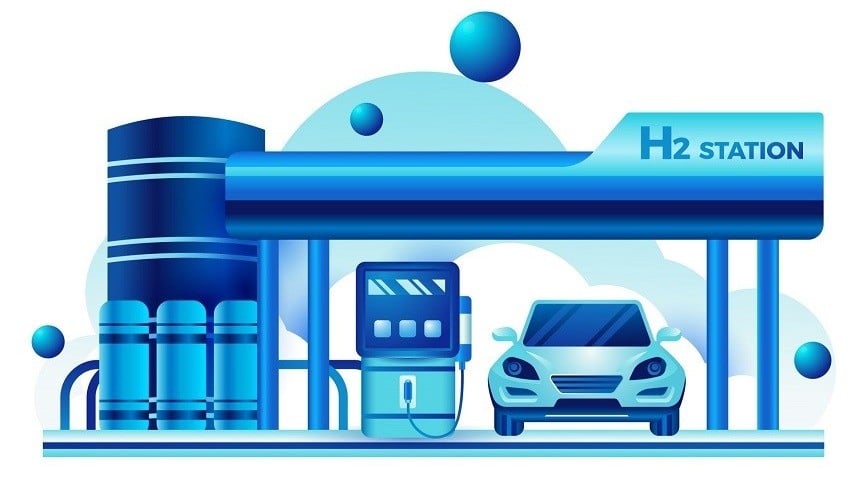A major mystery of the Trump tariff crusade: The “Liberation Day” “reciprocal” duties he’s threatening are completely disconnected from what other nations are charging the U.S. on our exports. In virtually all cases, Trump’s tariffs are multiple times larger. How does he justify this giant gulf? The president claims we’re getting “ripped off” not by excessive tariffs but blatant “non-tariff barriers” (NTBs), such as quotas and technical standards that systematically block our goods from foreign markets, while we naively open America to the “cheaters” who lock us out.
In reality, Trump’s got it backwards: The U.S. is a far more avid user of the NTBs he finds so offensive than all but a handful of the world’s major economies.
How protectionist is the U.S.?
A highly respected guide to where different countries’ trade policies stand on the spectrum from open to restrictive is the International Trade Barrier Index compiled by the Tholos Foundation, a Washington, D.C., think tank focusing on tax reform and policy research. For 2024, the Tholos data placed the U.S. as the 24th most protectionist economy in the world from a list of 88 countries, based on the number of restraints on trade each nation imposes. Overall, we’re about 10% above average in overall restrictions—on a roster featuring lots of bad actors. The Tholos numbers rate the U.S. 60% worse than Japan and Canada, respectively ranked No. 3 and No. 4 as most open to imports; 43% below the U.K.; around a third short of the average of the EU majors; and 15% shy of Taiwan. Amazingly, the survey found that this country’s got 90% as many protectionist measures as China, which sits 11 spots from the bottom, and 70% of the thicket spread by last place India.
Clearly, America’s position as relatively tough on trade overall isn’t a matter of tariffs. On the contrary. Before the Trump trade war started, the U.S. trade-weighted average duties on imports sat at an apparently welcoming 2.2%, according to the World Trade Organization. The WTO’s numbers put the average duty worldwide charged by the top six purchasers of U.S. exports—Canada, the EU, Mexico, China, Japan, and the U.K.—at 3.2%, only a point higher than the U.S. norm. The big exception: As a result of the offensive during the first Trump administration, China and the U.S. established special punitive rates that average 14% on their exports stateside, and 12% on our shipments to the world’s second-largest economy. So outside of trade conflicts, the U.S. is a super-low-tariff nation, and the countries where we send most of our goods don’t charge much more than we do.
Hence, what swings the U.S. from a modest deployer of tariffs to a country that’s much more protective are the indirect, non-tariff barriers or NTBs. In the same study, the Tholos Foundation tagged the U.S. as the world’s 15th-biggest user of NTBs and the fifth-ranking of any major industrial power, exceeded only by France, the Netherlands, the Czech Republic, and Switzerland. “For NTBs, the most active users are the US and the EU,” says Philip Thompson, policy analyst for Tholos.
Non-tariff barriers are extremely widespread
NTBs come in a wide variety of forms. They encompass such practices as quotas, technical standards, and packaging, labeling, licensing, and safety requirements. In a 2024 study, the St. Louis Federal Reserve reported that across 15 manufacturing sectors, NTBs covered well over two-thirds the imports of components, commodities, and finished products. The report points out the huge discrepancies between tariffs and NTBs in different industries. For the chemical and machinery/electrical sectors, U.S. tariff rates are under 2%. But NTBs covered over 70% of sales. Similar story for meat and vegetables: Tariffs look like a bargain at 3%, but over 90% of what companies in those businesses sell fall under the umbrella of NTBs. Even for what looks like free-market wood, the duty is 1%, while a third of what the U.S. imports gets shielded, pretty much on the sly. The paper concludes: “In contrast to tariffs, the [NTBs] are ubiquitous across U.S. imports in all industries.”
The St. Louis Fed found that about 20% of the NTBs involved such issues as sanitary inspections needed to protect U.S. consumers and workers. (The survey didn’t cover businesses such as semiconductors where national security may be involved.) Instead, the preponderance of NTBs appear “to reflect the goal of protecting domestic industry from foreign competition,” and result in distorting and “limiting the extent of international trade.”
How the ‘tariff-rate quota’ works
The U.S. is an avid user of a protectionist tool called the tariff-rate quota. Despite its name, the TRQ is really a non-tariff barrier because it doesn’t actually impose duties. TRQs typically allow products or commodities to enter the country duty-free to a certain level, and once the imports hit that bogey, trigger prohibitively high tariffs, effectively halting the flows of rival products and commodities from abroad, and enforcing a fixed quota to shield domestic producers. A top example: the sugar market, where, by law, the USDA rules restrict production to keep minimum prices generally higher than on the international markets. “The U.S. government is the leader of a nationwide sugar cartel,” a Cato Institute study declared. The sugar TRQ is a crucial component of that system since it prevents cheap imported sugar from undermining the guaranteed pricing.
TRQs, in fact, are a staple cash crop for U.S. agriculture. The Office of the U.S. Trade Representative publishes a list of the TRQs, and it’s exhaustive. A particular target is Australia. It faces quotas on creams and ice creams, condensed milk, butter, and a number of other farmland commodities. Canada gets hit on cheese, skim milk, butter, and many other dairy products. TRQs cap beef from Japan and cheese from Peru. Additional rules limit or block everything from beef from Brazil and Argentina, to tomatoes, blueberries and other produce from Mexico to foreign sunscreen.
In his “reciprocal” tariff campaign, Trump proposed cudgeling Taiwan at 34%, Japan at 24%, the EU at 10%, and Canada and Mexico at 25% on steel, aluminum, and non-U.S. content in cars, and he’s set a commerce-killing 245% duty on China. Yet in normal times, these nations charge the U.S. only slightly higher tariffs than the U.S. levies on their exports, and heap on far fewer non-tariff barriers than we do. Trump’s best solution would be offering to lower those NTBs that raise prices for American consumers and hobble our productivity in exchange for our trading partners’ agreement to lower their restrictions. That outcome would truly exemplify the art of the deal.
This story was originally featured on Fortune.com

























